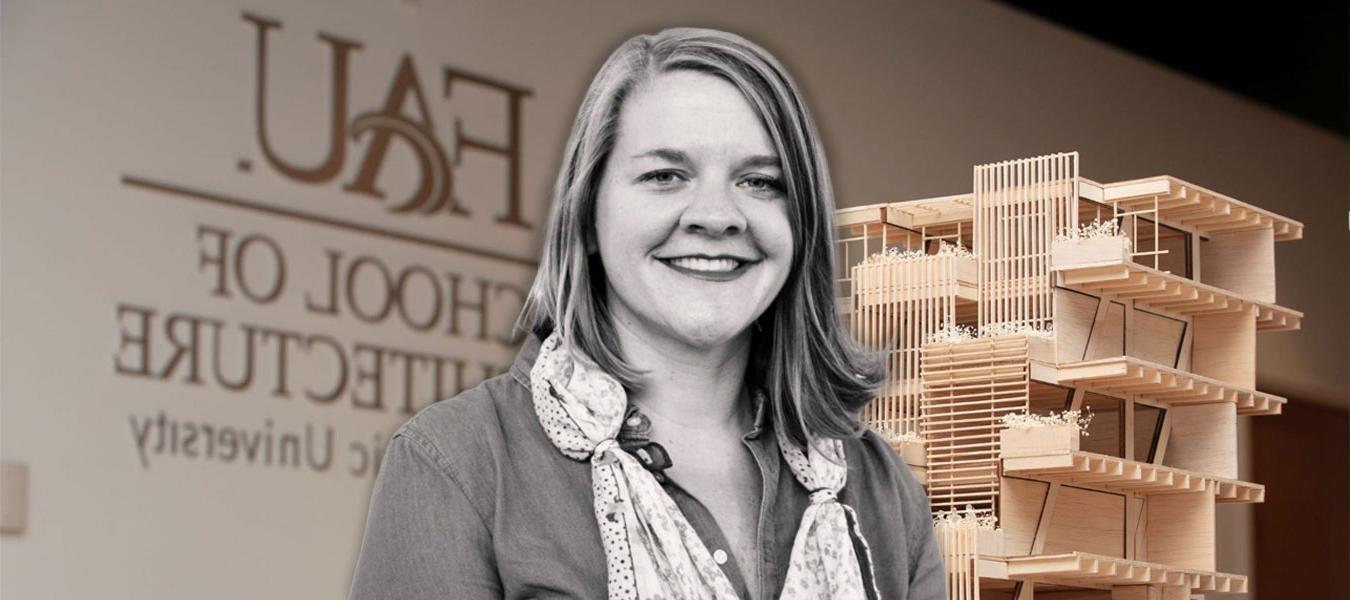8/9/2024
Beyond Buildings
Redefining Architectural Futures with Integrative Design
Being immersed in the world of architectural design doesn’t mean just cranking out buildings. It means you have to think about the way people can live in those buildings, according to Heather Ligler, a new assistant professor and foundations coordinator for the School of Architecture, Dorothy F. Schmidt College of Arts and Letters, located on Florida Atlantic’s Fort Lauderdale campus.
Ligler said she loves to create the opportunity for students to think in terms of design. Doing so, means they have to learn how to break problems apart and create solutions. They have to be flexible and adaptable with their thinking.
With a background in architectural practice, computational design research and studio-based instruction, Ligler said she has a passion for helping students describe, interpret and evaluate architectural design processes to envision new practices in the built environment.
Previously, she was an assistant professor at The Pennsylvania State University. Her background and interests converged with their vision for a design curriculum that integrates artificial intelligence and emerging technologies within a professional architecture program, she said, adding that SOA has both the momentum and the alchemy to foster novel contributions in pedagogy, research and design.
“I’m interested in the history and logic of architectural practices as well as the future of the discipline and how computation enables new frameworks for design inquiry – FAU SOA not only addresses the open-ended questions of architecture today, but it also takes on the ethical imperative to educate students to interrogate them and to speculate on the unfolding nature of the field,” she said.
Ligler's academic journey encompasses both a doctoral degree and a master’s in design computation from the School of Architecture at Georgia Institute of Technology, as well as bachelor’s degrees in architecture and interior architecture from Auburn University, Alabama. Ligler’s scholarly contributions include a 2020 dissertation that reinterprets John Portman’s architecture algorithmically to automate a metanarrative on the architect’s design principles as well as more recent work that builds on her interest in redescribing architectural languages through the lens of computation. Her current research includes a range of projects from theoretical work on the architect Anne Tyng’s notions that specify workflows to accelerate the adaptive reuse of existing buildings for affordable housing.
“Architecture is the context of our lives. We work in buildings. We live in buildings. And we’re used to being surrounded by generic spaces. But architecture can do more – and reframing design processes computationally can help us to be precise and rigorous in crafting more inspiring and holistic environments,” Ligler said.
Central to Ligler’s research is the exploration of architecture’s transformative potential through formal methods. Her expertise in the shape grammar formalism frames her perspective on design as a computational process that can be explained step-by-step to visualize the resolution of a number of parameters influencing design decisions including cultural, environmental, and aesthetic concerns. Through her work, she advocates for a redefinition of architectural thinking as a dynamic calculation that transcends conventional boundaries.
“You have to find this balance of creative yet critical thinking in design,” she said. “When you achieve that, you start to see every problem as a design problem that is malleable – and you have agency in that context, which is very powerful.”
For more information, email dorcommunications@kome-shibahara.com to connect with the Research Communication team.
